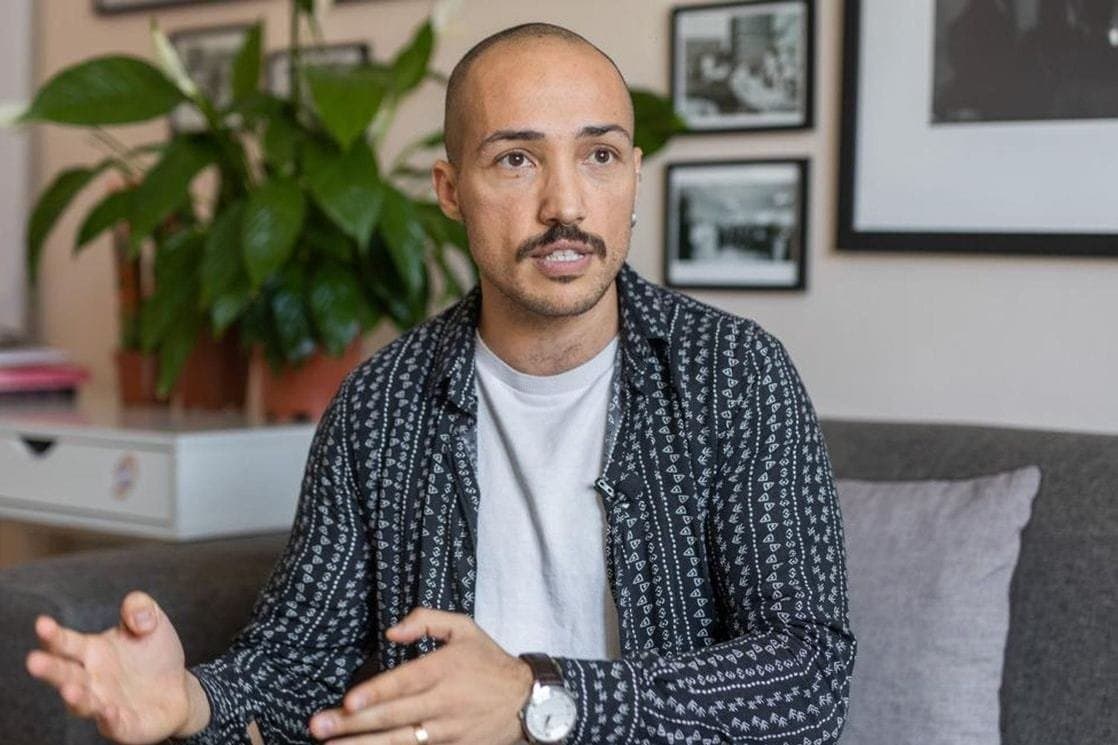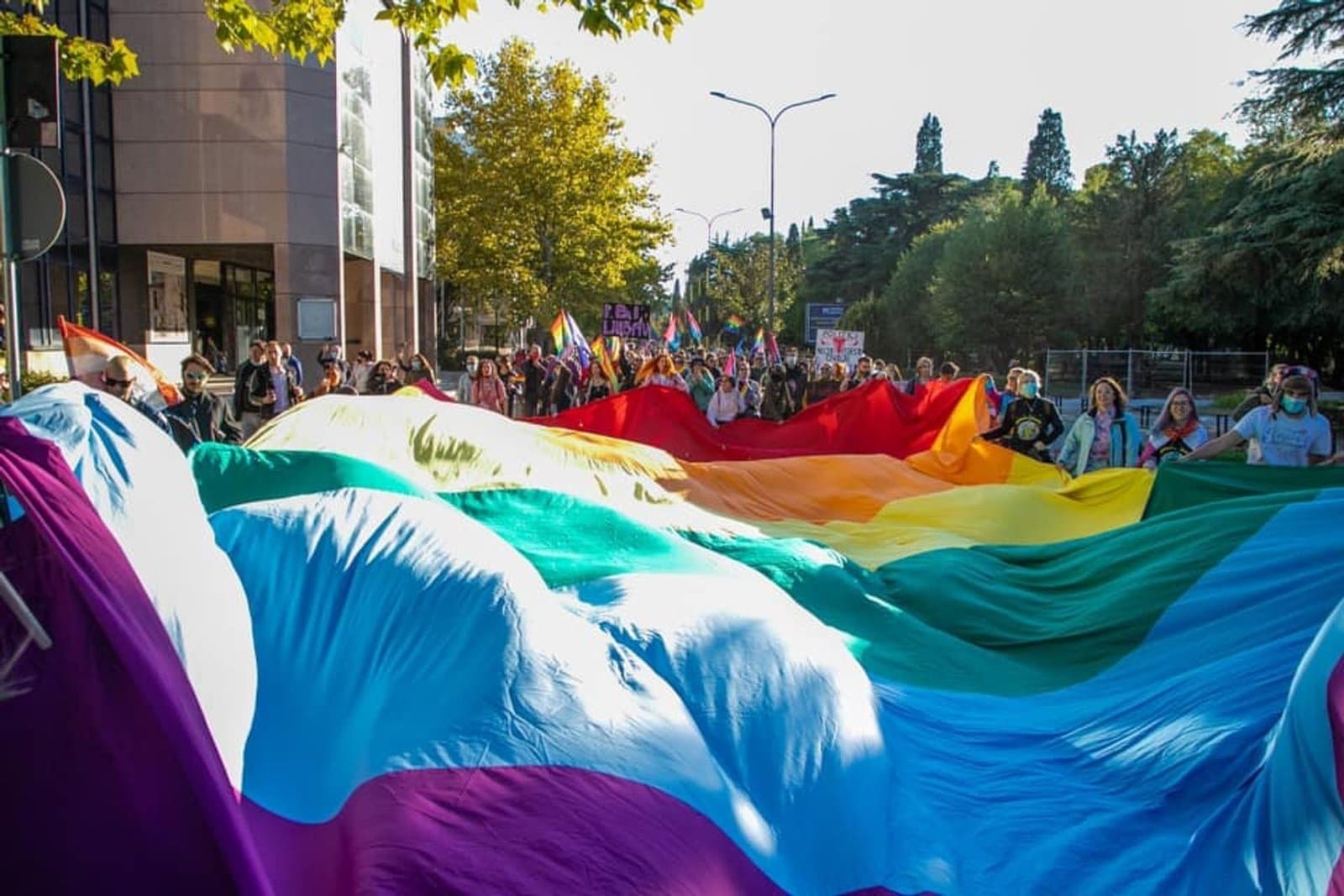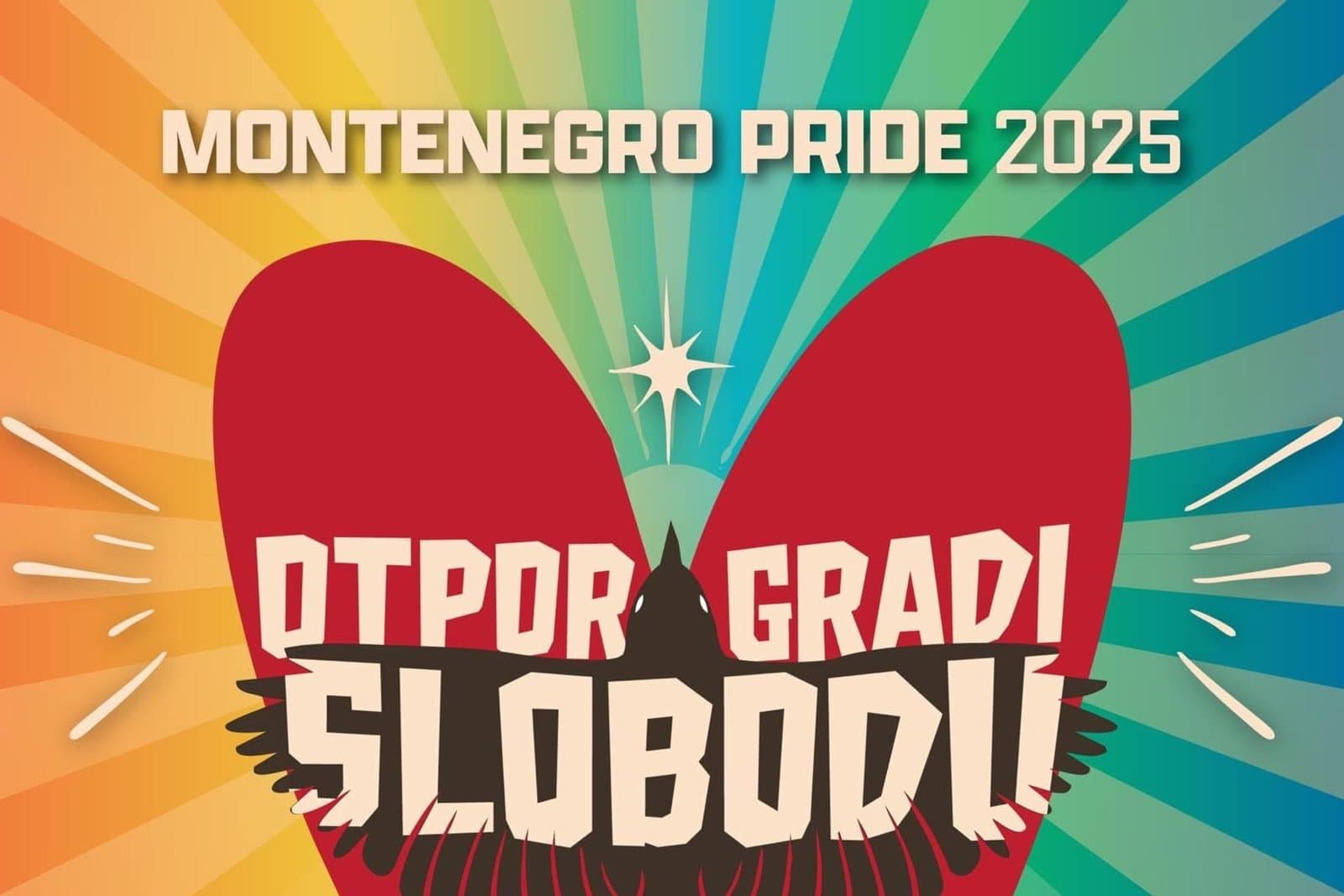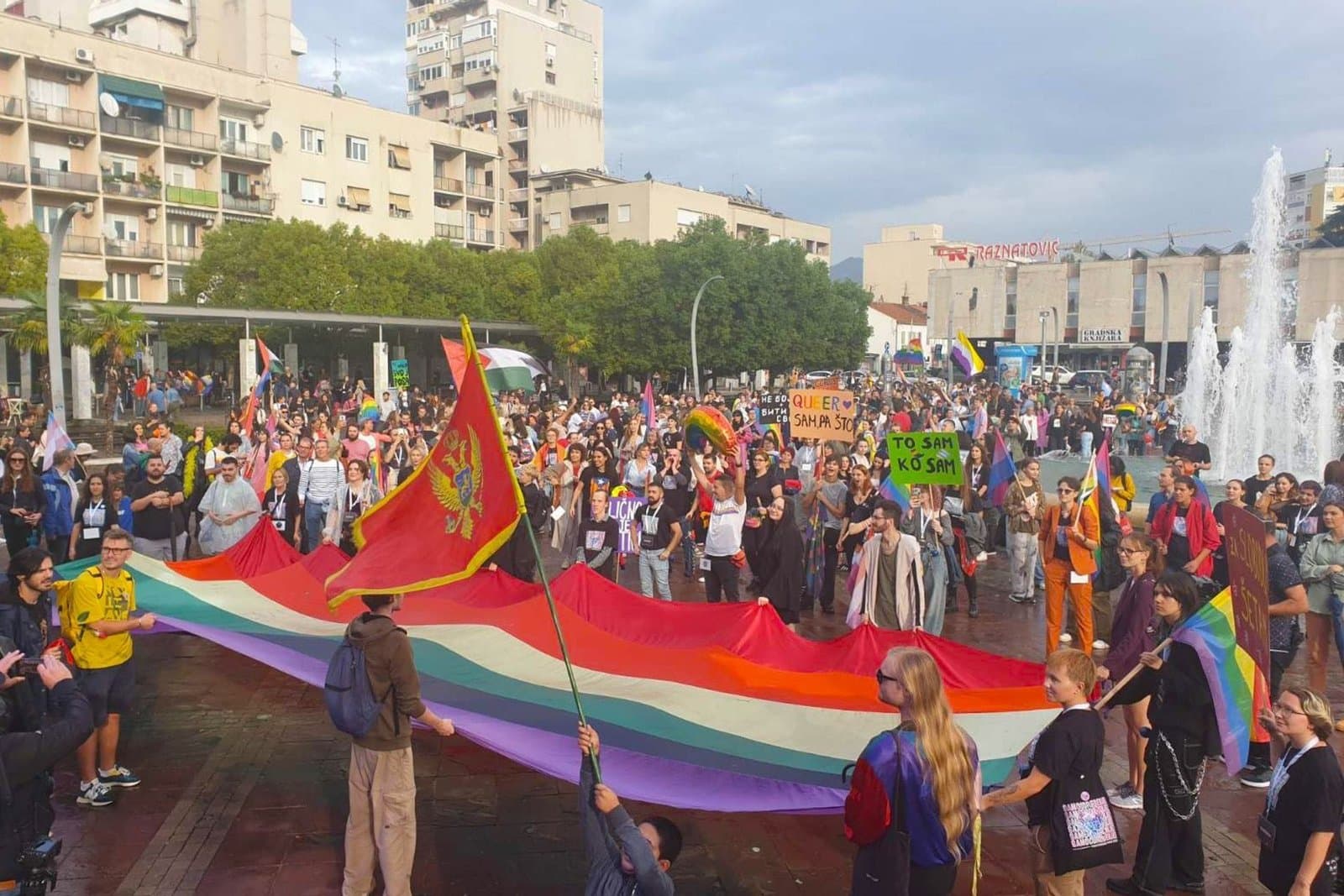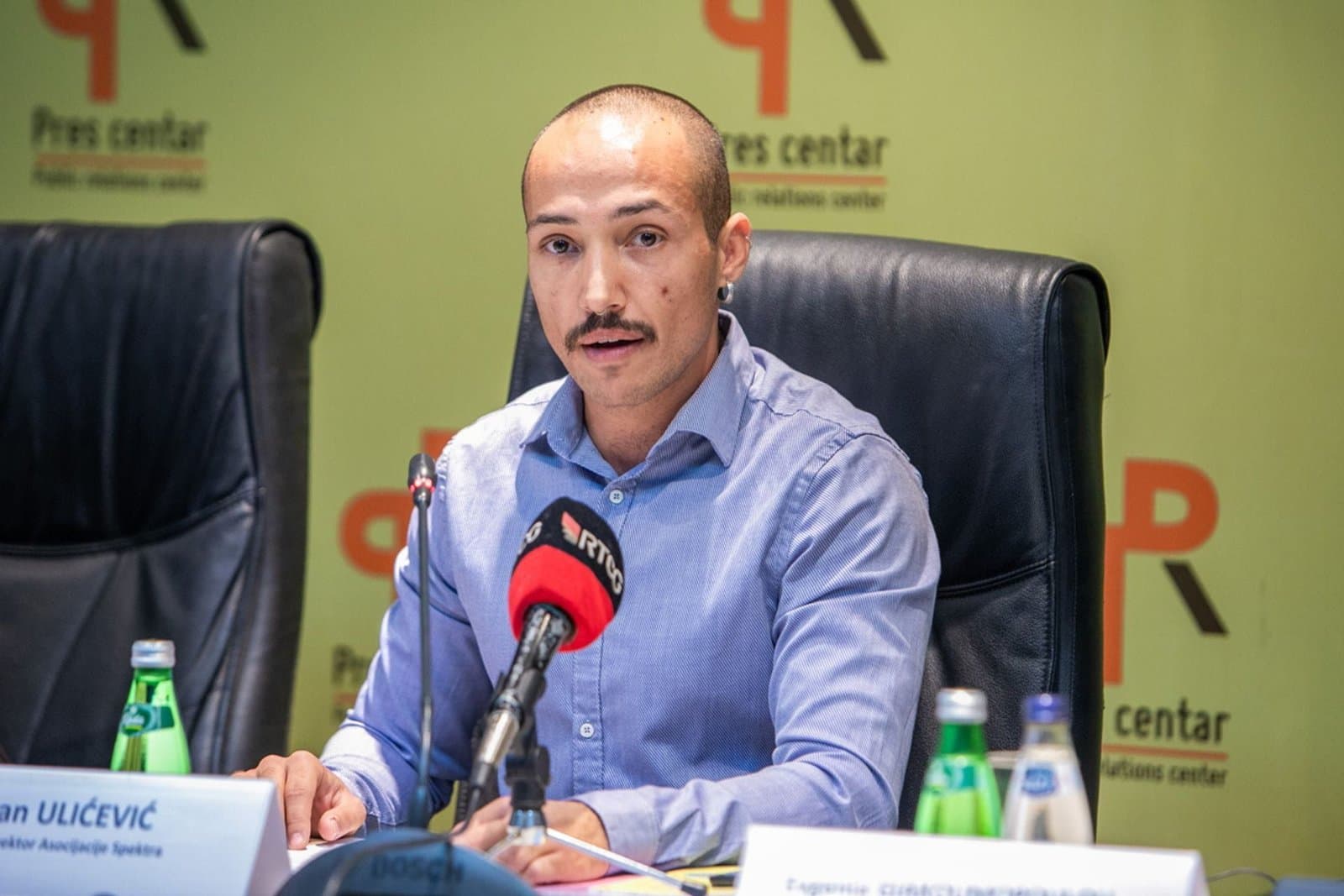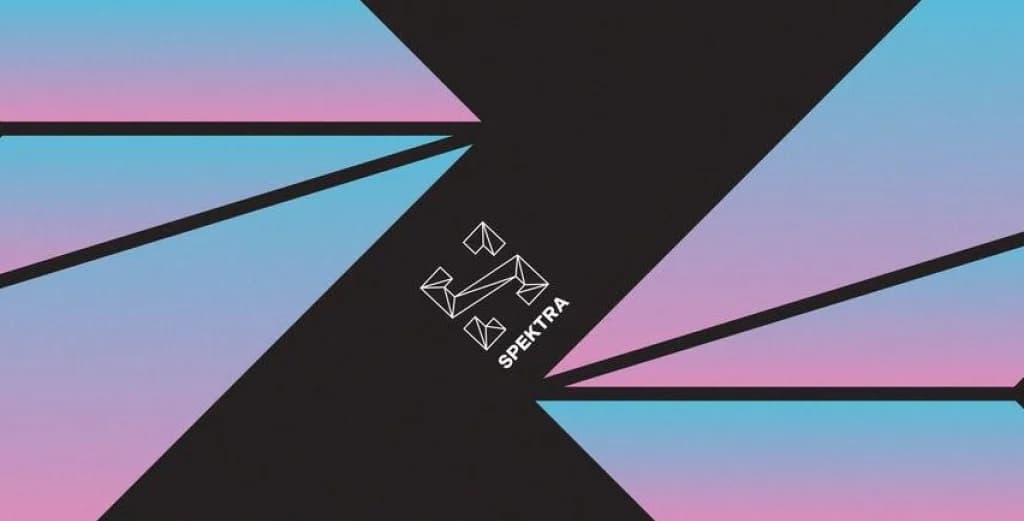“Everyone who cares about stopping violence, about workers’ rights, about a fairer society and about their children growing up in a good Montenegro should come to Pride. If someone is not comfortable – that’s exactly why they should come, because solidarity certainly does not flourish in comfort”, says the interviewee of Analitika
Under the slogan “Resistance builds freedom”, the 13th Montenegro Pride will be held in Podgorica on October 4. The gathering of participants is planned in front of the Parliament of Montenegro from 13:00 to 14:00, while the procession will start at 15:00.
This year’s procession, as Jovan Ulićević, executive director of the NGO Spektra Association, points out in an interview with Portal Analitika, goes beyond the walk itself – the goal is to point out the connection between different forms of repression and discrimination, and to send a message that freedom can only exist if it is shared.
“Freedom is either for all of us, or for no one. In our society, unfortunately, freedom is only for the selected, the rich and the politicians. Until we understand that, we have nothing to hope for. Freedom can only be won by joint forces, and the only thing we can lose are the chains,” says Ulićević.
He says that it is at the same time the philosophy behind every fight.
“As long as we stick exclusively to identity boxes and agree to the narrative that violence against one group concerns only that group, we agree to the policy of the ruling masses which is simple – “divide and rule”. I don’t think that people need to understand differently from themselves in order to participate together in the struggle for liberation. In fact, I believe that it is the opposite – that through joint direct actions, solidarity and understanding is built that leads to the liberation of all of us”, emphasizes the interviewee of Analitika.
Public spaces as places of solidarity and dialogue
According to him, Pride’s goal from the beginning was to make public spaces places of solidarity and dialogue, not exclusivity and division.
“The program is diverse, there is something for everyone, and a good part of it takes place in open spaces – because these are spaces that we must return to ourselves and the community. Activism must not be reduced to conferences and announcements. An example of this is Solidum Fest in Njegoševo Park, where we have music and entertainment and an introduction to the work of non-governmental organizations, but also the first in a series of discussions that we called “In the circle of the revolution”, where we will imagine a better one in an open, non-hierarchical format the future, as an alternative to the constant defense of institutions and an order that did not function properly, or let’s say the discussion that Trans Mreža Balkan organizes under the name “Anti-fascism of the future”, during which we will try to find an answer to the question of what anti-fascism is other than nostalgic memories of famous ancestors”, says Ulićević.
In addition, there are traditional events such as “Pride Cafe”, voguing classes, drumming workshops and evening parties.
“Everyone who cares about stopping violence, about workers’ rights, about a fairer society and about their children growing up in a good Montenegro should come to Pride. If someone is not comfortable – that’s exactly why they should come, because solidarity certainly doesn’t flourish in comfort,” he adds.
Society is increasingly violent towards everyone
And while Montenegro still records high rates of homophobia and transphobia, Pride, Ulićević believes, has an important role in building bridges.
“This society is increasingly violent towards everyone, and therefore also towards those who are different. Pride is one of the few continuous protests, apart from the March 8th March, which persistently calls for the solidarity of all citizens and raises awareness of the connection between oppression. Therefore, Pride is not an identity protest, nor has it ever been. It is up to the media to do their part, as well as to take a more active role in defending democracy against misinformation, which today is a propaganda tool for the spread of right-wing propaganda. message”, stresses the interlocutor of Analitika.
Right-wingers spread misinformation that raises the level of violence in society
When it comes to concrete forms of discrimination, Ulićević is clear – Montenegro still belongs to the European countries where the basic human rights of LGBTIQ people are violated.
“Let’s first agree and agree that the institutions are not doing their job. The work is done by individuals in the institutions, who encounter blockades and sabotage. For example, Montenegro is still one of the few European countries where part of the citizens undergo forced sterilization just to have documents in accordance with their identity. The Law on Life Partnership has meant only paper, but not rights, for five years now. Fascists collect political points behind our backs, while right-wingers spread misinformation that raises the level of violence in society,” he says.
The minimum standard is the right to self-determination
Although the adoption of the Law on Life Partnership in 2020 seemed to pave the way to equality, practice has shown otherwise.
“The inequality of same-sex partners was institutionalized and legitimized by that law. We got a dead letter on paper. Queer people have the same obligations as all citizens, but not the same rights. Although the authorities received specific guidelines on how to change the law, nothing was done. Only the tax laws and part of social protection were changed,” emphasized Ulićević.
He is particularly concerned about the absence of the Law on Legal Recognition of Gender Identity, although Montenegro is obliged to do so through EU negotiations, the UN and the recommendations of European bodies.
“Delaying the adoption of the law means that trans people daily choose between the violence of forced sterilization and the violence that results from the discrepancy between documents and identity. The minimum standard is the right to self-determination. When creating the law, we agreed to various compromises that are even in the realm of human rights violations, which imply that the law is limited only to adult citizens of Montenegro, does not apply to migrants and asylum seekers, does not apply to married persons or persons against whom proceedings are being conducted. This is a direct violation of human rights,” he warns. he.
The state shows that it exists
According to Ulićević, institutional support for the LGBTIQ community is mostly declarative.
“Our representatives cannot understand that lighting up a building or walking on Pride is not essential support. Such performances are not there for our sake, but for their sake. This is an unsafe and increasingly violent society, which is so because of the negligence of institutions and intense poisoning of citizens against each other, while living conditions are getting worse and worse. Therefore, for an essentially safe society, there must first be at least some relative equality, and not a society of the rich and powerful and the rest of us,” Ulićević is clear.
It is especially important, as he said, for the state to show that it exists and to put an end to very active fascism.
“Fight the privatization of Montenegro and the creation of elites and snobs, organize progressive education that teaches children, first of all, friendship and to recognize oppression, provide quality health care available to everyone, let a roof over your head cease to be a privilege made possible by banks and that’s a safe society. I am not a supporter of measures that only involve the repression of violent social phenomena. I am not satisfied with full prisons, but with being able to live peacefully with my neighbors and family,” he underlines. interlocutor of Analytics.
From the first attempts of Pride to today, the situation has changed, he says, although not as much as it should.
“From the statement of the then minister for human rights that “there is no such thing in Montenegro”, we came to the awareness that queer people exist and that they are an inseparable part of society. Laws have been adopted, but they are not implemented in practice. Political parties still calculate with our rights when there is an interest in it. The biggest shift is a much greater understanding among our fellow citizens, among different generations and in different environments.The situation on social networks is different because that contact is depersonalized and dehumanized, there is a lot of hatred there, but it should be taken into account that algorithms make it possible, together with institutions,” says Ulićević.
We need more progressive thought and solidarity and less vanity
When asked what kind of future he foresees for the LGBTIQ movement, Analitika’s interlocutor says that a future full of changes awaits us, because the present is so dynamic and many intense social processes are happening both on a global and local level.
“First of all, if social movements, as well as those in positions of power, have enough wisdom to preserve peace, I think we are certainly in for a very turbulent decade. Activism must stop maintaining the status quo and be locked in defending institutions that do not work, but dare to imagine and then fight for a much better and fairer future. We need more radical progressive thoughts, more solidarity and less vanity. Years of resistance that builds freedom are coming – these are not easy processes, but they are processes that require unity and courage”, concludes Ulićević.
Source: Portal Analitika

